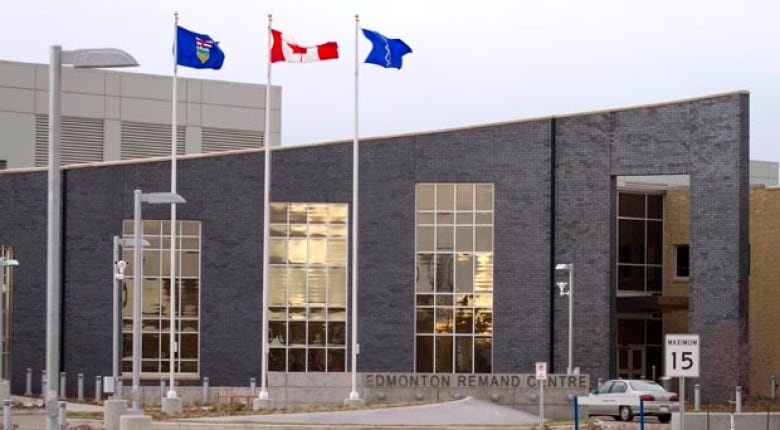Alberta ending immigration detention arrangement with CBSA
'Alberta's notice of termination is certainly a positive development,' says lawyer

Alberta is ending its agreement with the Canada Border Services Agency (CBSA) to incarcerate immigration detainees in provincial jails.
The agency says Alberta gave it notice to cancel the contract, though the Alberta government won't confirm or deny that.
Under contracts with CBSA, many provinces imprison migrants for administrative reasons, even though they are not accused of a crime.
These foreign nationals, including asylum seekers, are subjected to the same conditions as the prison population, a practice that violates international law.
The lack of transparency around immigration detention is nothing new.- Hannah Gros, immigration lawyer
The Alberta government refuses to say when it handed its termination notice to CBSA and on what date the contract will officially end.
"Currently, Alberta's government has an agreement in place with the Canada Border Services Agency (CBSA)," is all Joseph Dow, press secretary to Alberta Minister of Justice Tyler Shandro, would say.
When prompted for more details, CBSA spokesperson Maria Ladouceur said: "The cancellation notice has been received. The agency will not comment on the state of the negotiations."

'Victory for human rights'
Human Rights Watch is one of the organizations behind #WelcometoCanada, a campaign calling for the end to migrant imprisonment.
"Alberta's notice of termination is certainly a positive development," said Hanna Gros, an immigration lawyer and expert in immigration detention with Human Rights Watch.
"It's certainly another victory for human rights."
Though Gros applauds the news, she's critical — but unsurprised — of the secrecy surrounding the negotiations.

"The lack of transparency around immigration detention is nothing new,'' Gros said. "CBSA has an immense amount of power and discretion in depriving the liberty and basic rights of people who are seeking safety in this country or coming here for a better life."
She's asking the federal government to show leadership and put an end to the incarceration of migrants once and for all.
Two other provinces have already announced the end of their contracts with CBSA.
British Columbia was the first to do so in July 2022.
A review "brought to light that aspects of the arrangement do not align with our government's commitment to upholding human-rights standards," B.C. Minister of Public Safety Mike Farnworth said at the time.
Nova Scotia followed suit in September 2022.
In both cases, their agreements required 12 month written notice to CBSA, which means the imprisonment of migrants in those two provinces will remain in effect until 2023.
Another province pondering contract's future
The Saskatchewan government has indicated to Radio-Canada/CBC that it's currently reviewing its agreement with CBSA, but would not provide more information at this time.
For their part, Ontario, Quebec and New Brunswick are resisting calls to end their immigration detention contracts with CBSA.
The three provinces have not given a cancellation notice to CBSA and plan on continuing to imprison migrants in their jails for the time being.
CBSA would not say what type of arrangement it has with provinces that are not bound by an agreement.
Some 2,000 migrants have been incarcerated in provincial jails every year from 2015 to 2020.
Minister of Public Safety Marco Mendicino, who is responsible for CBSA, told Radio-Canada/CBC on Sept. 29, 2022, that when migrants are being held they are detained in a way that is consistent with international standards.
But Human Rights Watch, Amnesty International and the United Nations High Commissioner for Refugees all said that international law forbids the imprisonment of migrants for administrative purposes in the same facilities as criminals.

